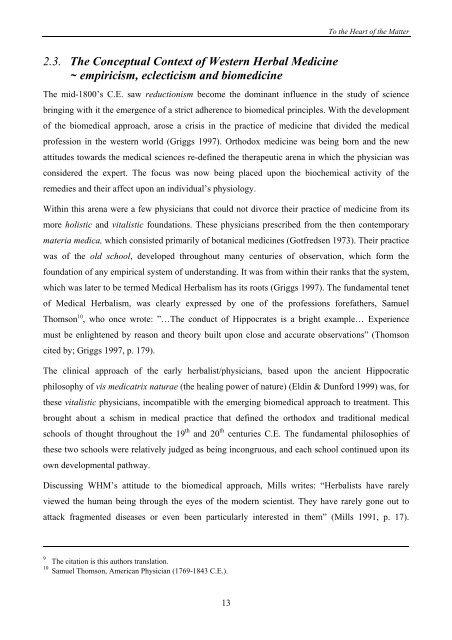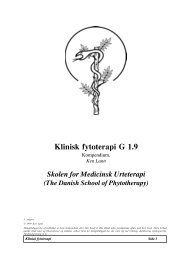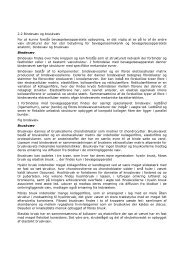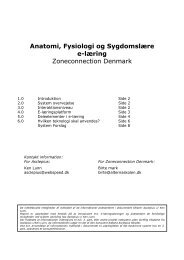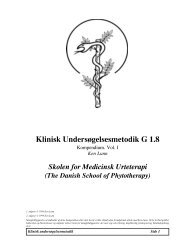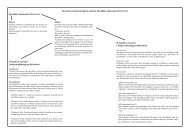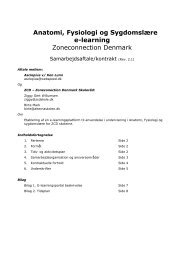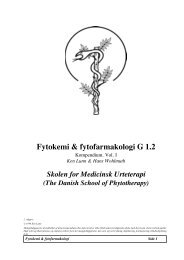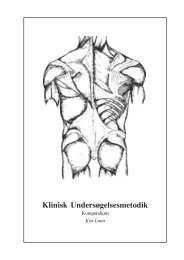PDF File - Asclepius Herbal Consultancy
PDF File - Asclepius Herbal Consultancy
PDF File - Asclepius Herbal Consultancy
Create successful ePaper yourself
Turn your PDF publications into a flip-book with our unique Google optimized e-Paper software.
2.3. The Conceptual Context of Western <strong>Herbal</strong> Medicine<br />
~ empiricism, eclecticism and biomedicine<br />
To the Heart of the Matter<br />
The mid-1800’s C.E. saw reductionism become the dominant influence in the study of science<br />
bringing with it the emergence of a strict adherence to biomedical principles. With the development<br />
of the biomedical approach, arose a crisis in the practice of medicine that divided the medical<br />
profession in the western world (Griggs 1997). Orthodox medicine was being born and the new<br />
attitudes towards the medical sciences re-defined the therapeutic arena in which the physician was<br />
considered the expert. The focus was now being placed upon the biochemical activity of the<br />
remedies and their affect upon an individual’s physiology.<br />
Within this arena were a few physicians that could not divorce their practice of medicine from its<br />
more holistic and vitalistic foundations. These physicians prescribed from the then contemporary<br />
materia medica, which consisted primarily of botanical medicines (Gotfredsen 1973). Their practice<br />
was of the old school, developed throughout many centuries of observation, which form the<br />
foundation of any empirical system of understanding. It was from within their ranks that the system,<br />
which was later to be termed Medical <strong>Herbal</strong>ism has its roots (Griggs 1997). The fundamental tenet<br />
of Medical <strong>Herbal</strong>ism, was clearly expressed by one of the professions forefathers, Samuel<br />
Thomson 10 , who once wrote: ”…The conduct of Hippocrates is a bright example… Experience<br />
must be enlightened by reason and theory built upon close and accurate observations” (Thomson<br />
cited by; Griggs 1997, p. 179).<br />
The clinical approach of the early herbalist/physicians, based upon the ancient Hippocratic<br />
philosophy of vis medicatrix naturae (the healing power of nature) (Eldin & Dunford 1999) was, for<br />
these vitalistic physicians, incompatible with the emerging biomedical approach to treatment. This<br />
brought about a schism in medical practice that defined the orthodox and traditional medical<br />
schools of thought throughout the 19 th and 20 th centuries C.E. The fundamental philosophies of<br />
these two schools were relatively judged as being incongruous, and each school continued upon its<br />
own developmental pathway.<br />
Discussing WHM’s attitude to the biomedical approach, Mills writes: “<strong>Herbal</strong>ists have rarely<br />
viewed the human being through the eyes of the modern scientist. They have rarely gone out to<br />
attack fragmented diseases or even been particularly interested in them” (Mills 1991, p. 17).<br />
9 The citation is this authors translation.<br />
10 Samuel Thomson, American Physician (1769-1843 C.E.).<br />
13


